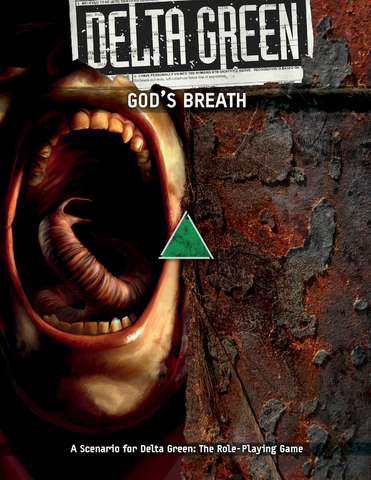Delta Green Cosmic Horror; Dark; Psychological; Investigation; Tactical; Team-Based; Resource Management
Delta Green: A Comprehensive Overview
Delta Green is a tabletop roleplaying game that blends Lovecraftian horror with modern conspiracy and tactical gameplay. Players assume the roles of agents tasked with protecting the world from unnatural threats, often at great personal cost. The game utilizes a streamlined percentile system derived from Call of Cthulhu, emphasizing investigation, resource management, and the psychological toll of confronting cosmic horrors. Its unique mechanics and bleak setting cater to a mature audience seeking a challenging and immersive experience.
Theme and Setting
Delta Green is deeply rooted in the cosmic horror of H.P. Lovecraft's Cthulhu Mythos, but it transposes the setting to the modern era. Agents operate in a world of government conspiracies, paranormal threats, and the ever-present danger of losing their sanity. The game emphasizes a bleak and realistic tone, focusing on the psychological impact of encountering the unnatural. The setting begins in the mid-1990s, with updates reflecting the changing world. The game revolves around a fictitious secret organization, created by the U.S. Government following the covert raid on the town of Innsmouth. Agents work undercover through other U.S. government agencies, recruiting across a wide range including the FBI, ATF, CIA, CDC, DEA and the U.S. Military. Delta Green agents typically know little about the Mythos. While the scenarios and written material is centered around the United States, there are possibilities for international games too. Delta Green: Countdown introduced counterparts in the United Kingdom and Russia, called PISCES and GRU SV-8 respectively, as well as real-life international law enforcement and intelligence agencies.
Core Mechanics and Rules
Delta Green uses a percentile-based (d100) system, adapted from Basic Role-Playing (BRP) and Call of Cthulhu. Players roll percentile dice against their character's skills to determine success. Combat is designed to be quick, tactical, and deadly, with a lethality rating assigned to weapons that can result in instant kills. A key mechanic is the Sanity system, which tracks the mental deterioration of agents as they encounter horrifying events. Excessive loss of Sanity can lead to mental disorders. The game also features Bonds, representing the agent's relationships with friends and family, which serve both as character-expanding tools and a sanity-regulation mechanic. Failed skill checks can be marked for improvement during downtime, offering a unique progression system. The original 1997 edition of Delta Green was a sourcebook for Call of Cthulhu; as such, it used the Basic Role-Playing system that Call of Cthulhu had.
The 2016 standalone edition takes the percentile dice of Basic Role-Playing and Call of Cthulhu mechanics, and introduces modifications adapted for the setting. Player Characters are called Agents and the Game Masters Handlers.
What Makes It Unique
Delta Green distinguishes itself through its focus on modern horror, conspiracy, and the psychological toll on its characters. The 'Bonds' mechanic creates a strong connection between the agent's personal life and their dangerous work, adding depth and emotional weight to the game. The lethality of combat and the ever-present threat of sanity loss emphasize the stakes involved in confronting the Mythos. Unlike some other Cthulhu-based games, Delta Green places a greater emphasis on investigation, resource management, and tactical decision-making. Its streamlined rules and emphasis on narrative make it accessible to new players while still providing a challenging and immersive experience for veterans. This game takes the BRP system and streamlines it to perfection, and the lethality rating is a great way to make automatic weapons more dangerous than other weapons while streamlining the typical mechanics for this type of thing. Combat involves opposed rolls where you want to roll the highest without going over. The winner deals the damage. This removes the issue of whiffing, which is common in d100 games because someone is typically taking damage every roll. Combat is fast and tense.
Target Audience and Player Experience
Delta Green is geared towards a mature audience that enjoys horror, conspiracy thrillers, and tactical gameplay. Players should be comfortable with themes of violence, psychological trauma, and moral ambiguity. The game offers a challenging and rewarding experience for those who enjoy investigative roleplaying, resource management, and team-based problem-solving. The player experience is characterized by tension, suspense, and a constant sense of dread. Success often comes at a high cost, both physically and mentally, making for memorable and impactful gaming sessions. It is especially appealing to players who appreciate a game that blends narrative depth with strategic decision-making. The long skill list might be necessary for niche protection, and the game lends itself well to immersive roleplay. It falls into the background and only comes up when necessary.



